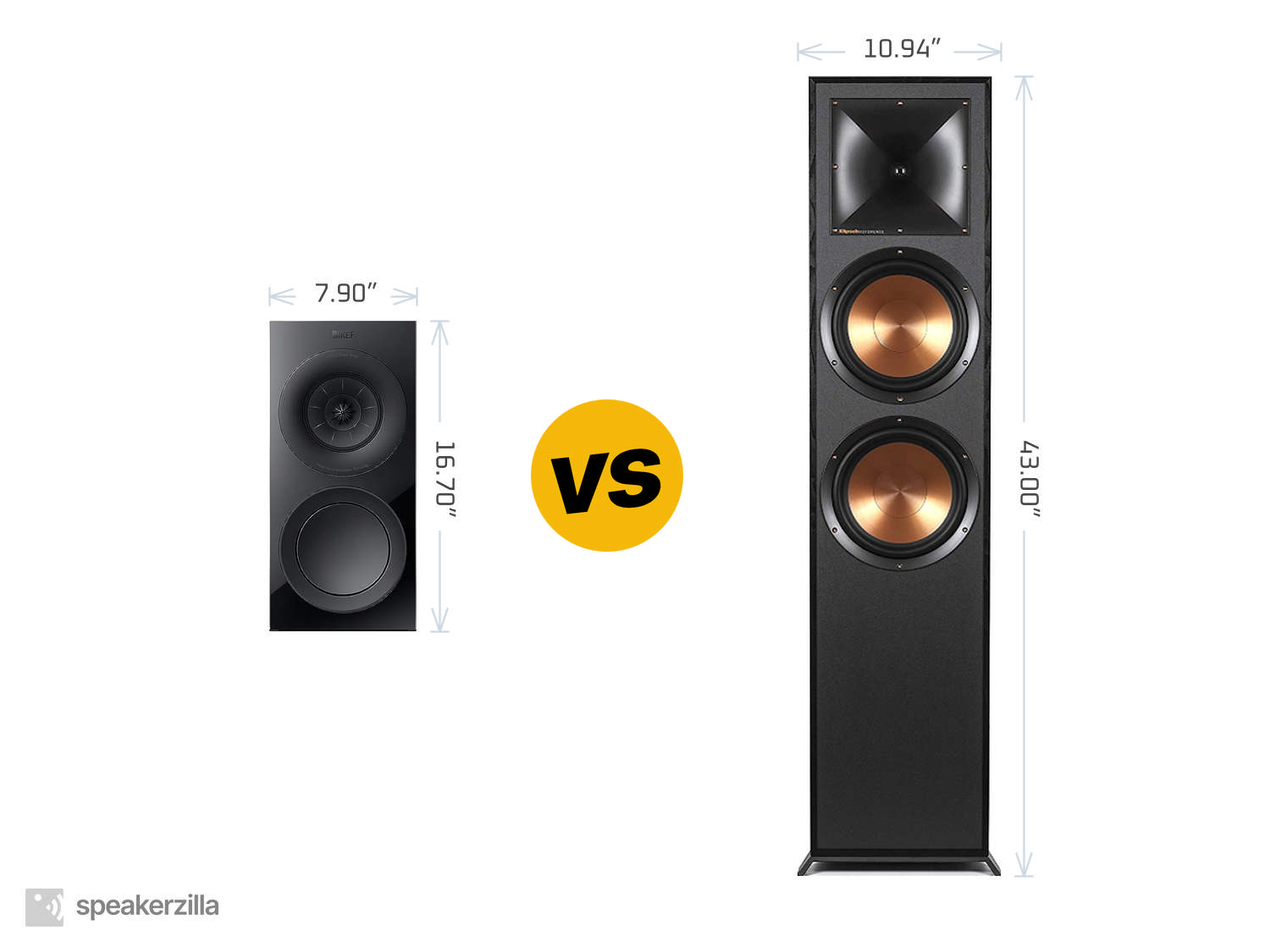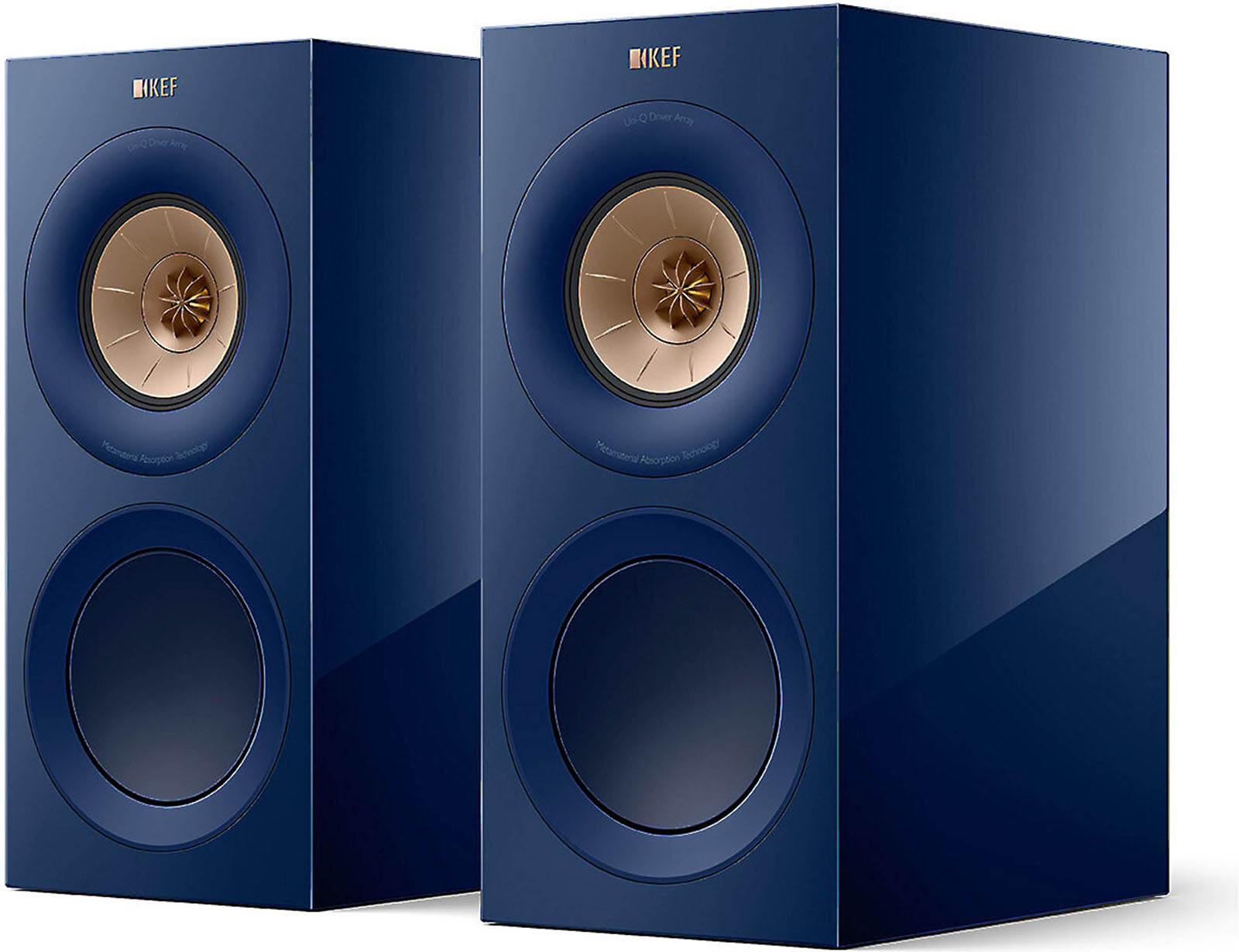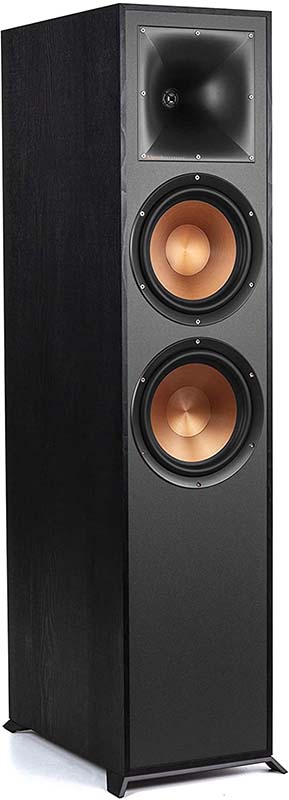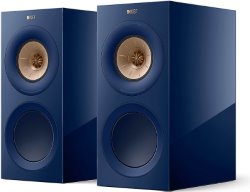KEF R3 Meta vs. Klipsch Reference R-820F

| KEF R3 Meta Bookshelf Speakers | Klipsch Reference R-820F Tower Speakers |
| MSRP | |
| $2200 | $1000 |
| Dimensions (H × W × D) | |
|
16.70” × 7.90” × 13.50” 424mm × 201mm × 343mm |
43.00” × 10.94” × 17.50” 1092mm × 278mm × 444mm |
| Power Type | |
| Passive | Passive |
| Frequency Response | |
| 58-28,000 Hz | 35-21,000 Hz |
|
Amazon.com
|
Amazon.com
|
Key Takeaways
TLDR Summary: In the realm of high-fidelity sound, the KEF R3 Meta bookshelf speakers and Klipsch Reference R-820F tower speakers present a compelling study in contrasts. The R3 Meta, with its Uni-Q driver array and Metamaterial Absorption Technology, offers a sophisticated, nuanced soundstage ideal for critical listening in intimate spaces. The Klipsch R-820F, with its assertive Tractrix horn-loaded tweeter and dual 8-inch woofers, delivers dynamic, room-filling sound with a distinct emphasis on efficiency and impact. Audiophiles must weigh KEF's detail and imaging prowess against Klipsch's powerful presence and lively character.
Speaker Comparison
Embarking on the quest for the ultimate audio experience, audiophiles often find themselves comparing apples to oranges, or in this case, bookshelf speakers to floorstanders. The KEF R3 Meta bookshelf speakers and Klipsch Reference R-820F tower speakers are two contrasting embodiments of high-fidelity sound, each with its distinct approach and philosophy. The KEF R3 Meta, part of KEF's lauded R Series, touts advanced technologies like the Metamaterial Absorption Technology (MAT) and the Uni-Q driver array, promising a clean and detailed sound. On the other hand, the Klipsch Reference R-820F, with its towering presence, leverages the brand's renowned horn-loaded tweeter and dual 8-inch woofers to deliver dynamic and impactful performance.
Sonic Character and Performance
The KEF R3 Meta bookshelf speakers exhibit a refined and articulate sonic character, thanks to the innovative MAT, which effectively absorbs unwanted sound from the rear of the driver, reducing distortion and enhancing purity. The Uni-Q driver, with its concentric design, ensures a more even dispersion of sound, leading to a wider sweet spot and a more immersive listening experience. Conversely, the Klipsch R-820F speakers, with their trademark Tractrix horn-loaded tweeter, emit a lively and forward sound that aims to recreate the excitement of live music with stellar efficiency and dynamics. The dual woofers, meanwhile, pump out robust and energetic bass tones, ensuring that the speakers fill even large rooms with ease.

 (at Amazon.com)
(at Amazon.com)Design and Build Quality
From a design perspective, the KEF R3 Meta speakers exude a modern allure with their sleek and minimalist form factor, fitting seamlessly into contemporary spaces. The build quality is impressive, with a nod to luxury in their flawless finishes and sturdy cabinets. Klipsch, with its Reference R-820F speakers, goes for a more traditional and commanding visual impact. The speakers' size and wood-grain vinyl wrap evoke a classic speaker aesthetic that is beloved by many enthusiasts. Both sets of speakers boast a high level of craftsmanship, but they cater to different aesthetic sensibilities.
Integration and Placement
When it comes to integrating into a home audio system, the KEF R3 Meta's compact size offers greater flexibility. These bookshelf speakers can fit into smaller spaces or be mounted on stands, making them ideal for those with limited room. In contrast, the Klipsch R-820F towers demand more floor space, but they also skip the need for additional stands. Placement is critical for both, as the KEF R3 Meta benefits from careful positioning to optimize its soundstage, while the Klipsch R-820F enjoys a little more leniency due to its assertive output and broad dispersion pattern.

 (at Amazon.com)
(at Amazon.com)As for power handling and sensitivity, the KEF R3 Meta, with a rating of 87dB sensitivity, requires a bit more power from an amplifier to truly shine. The speakers come alive when paired with high-quality amplification, rewarding the listener with an exquisitely detailed performance. The Klipsch R-820F, on the other hand, with a significantly higher sensitivity of 97dB, is easier to drive. They can achieve high volumes with less power, making them a good match for a wider variety of amplifiers and receivers, including those with modest output capabilities.
Compare to similar speakers
The choice between bookshelf and tower speakers, such as the KEF R3 Meta and Klipsch R-820F, ultimately depends on personal preferences and listening habits. The KEF R3 Meta is ideal for those who value nuance and detail, offering a level of sonic transparency that can reveal the intricacies of the recorded performance. The Klipsch R-820F, with its muscular and assertive sound, is perfect for listeners who prioritize impact and the ability to effortlessly fill the room with rich, dynamic audio.
When it comes down to making a decision, it's essential to consider the characteristics of your listening space, the genres of music you prefer, and the type of audio experience you're seeking. The KEF R3 Meta might be the perfect choice for an intimate jazz club atmosphere in the comfort of your home, while the Klipsch Reference R-820F could be the ticket to a rock concert experience. Regardless of the direction you lean towards, both the KEF R3 Meta and Klipsch R-820F stand as formidable contenders in the pursuit of high-fidelity sound, each with its own set of virtues that can take your listening experience to new heights.
- KEF R3 Meta reviews and FAQs
- Klipsch Reference R-820F reviews and FAQs
Check Current Prices: |
|
|
Amazon.com
|
Amazon.com
|
Affiliate Disclosure: As an Amazon Associate, we earn from qualifying purchases.

